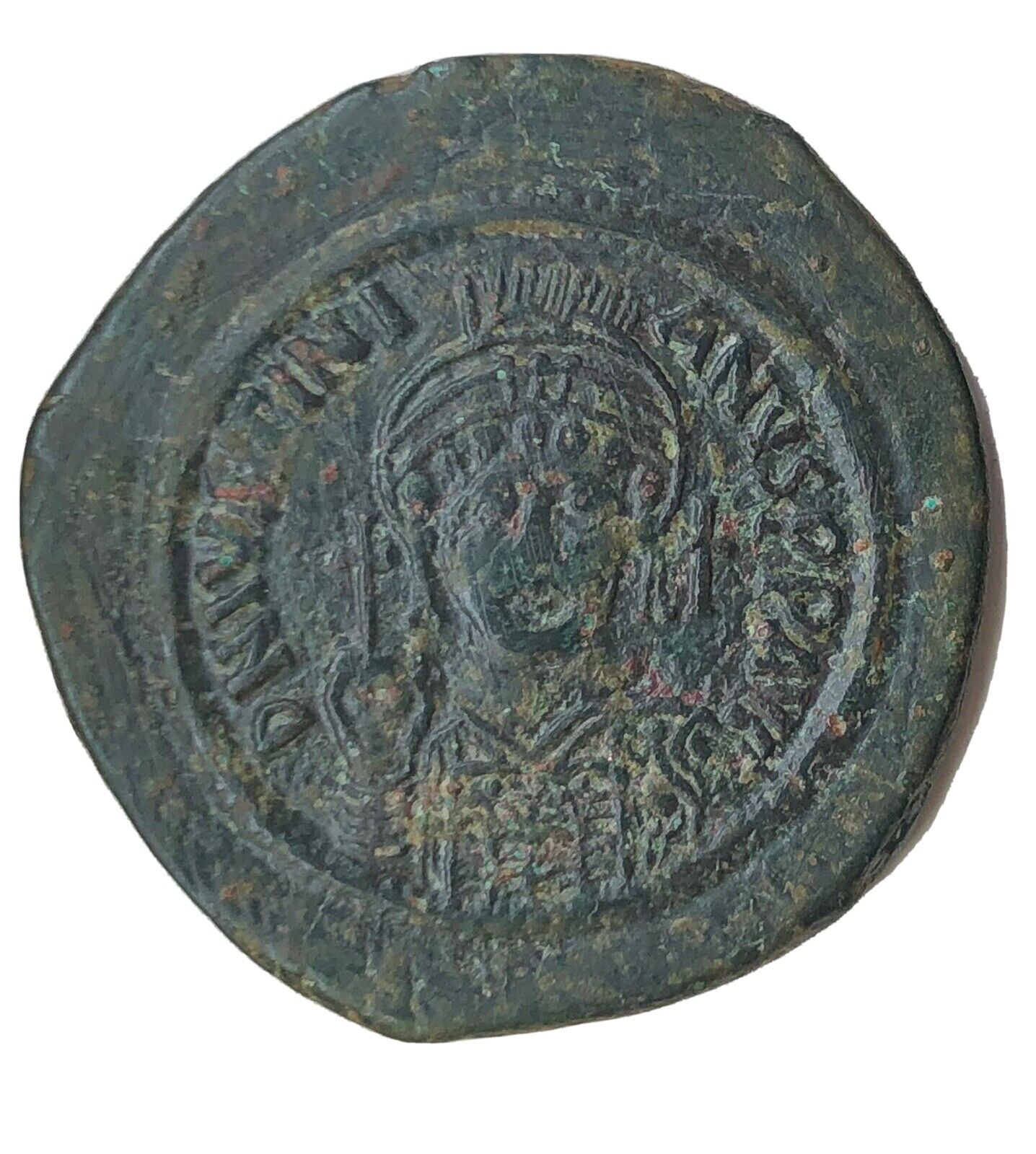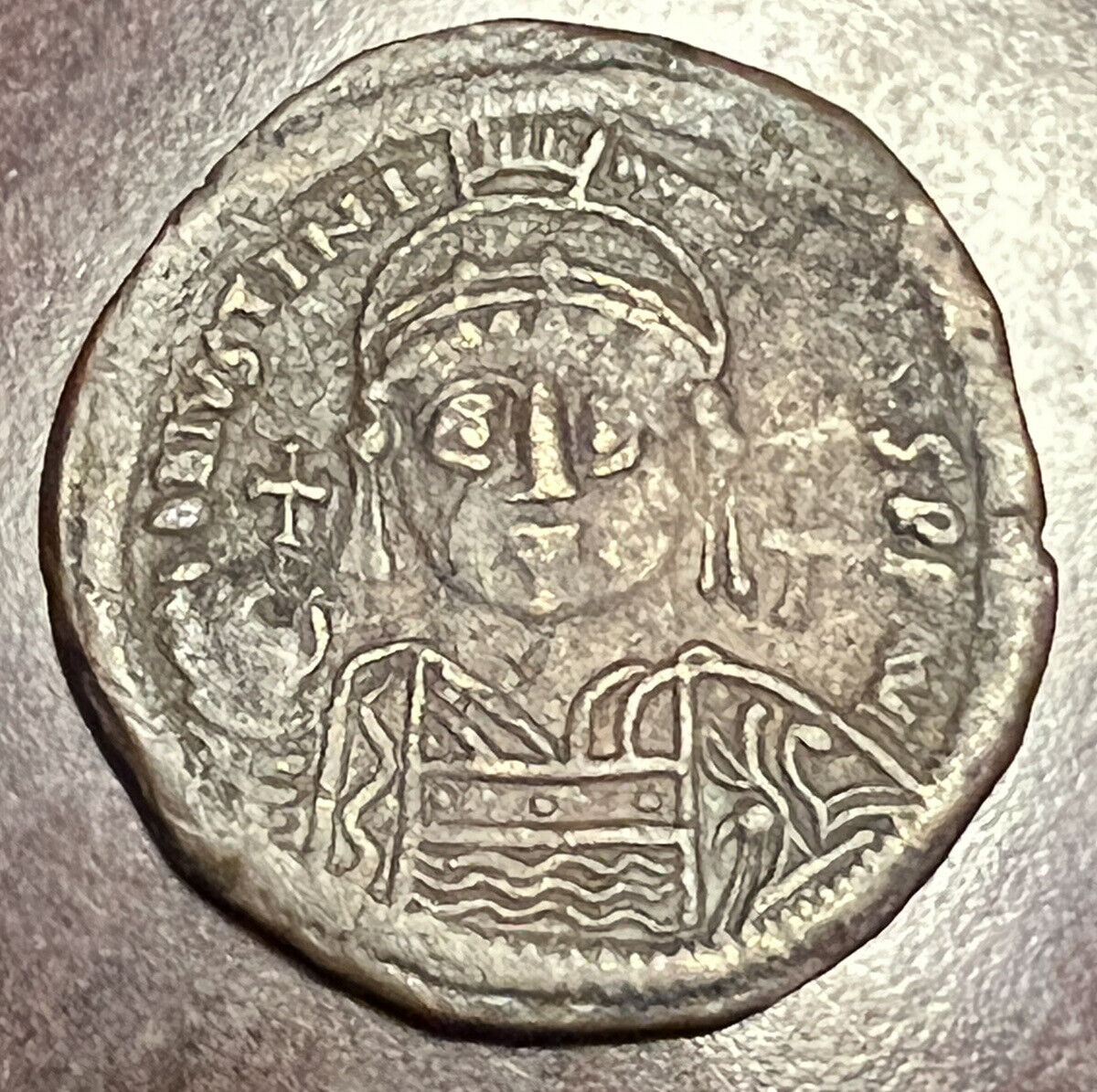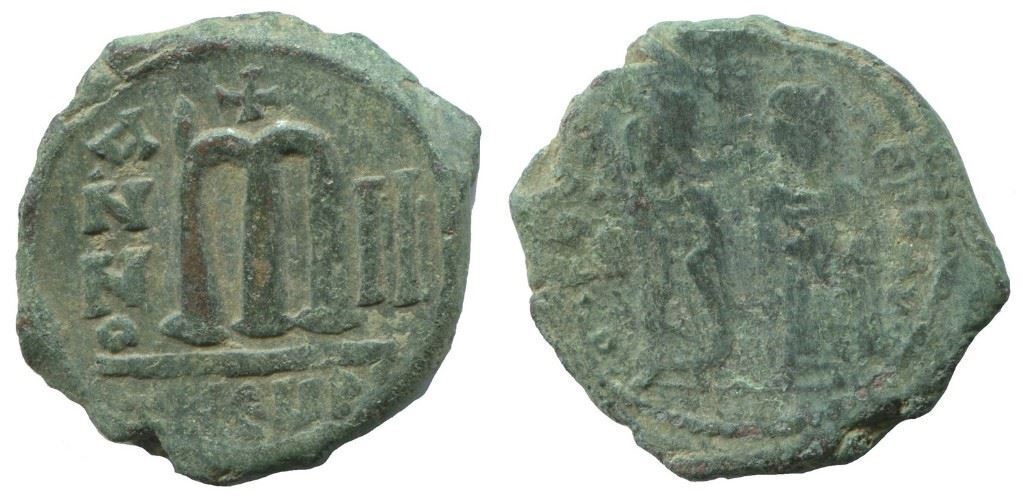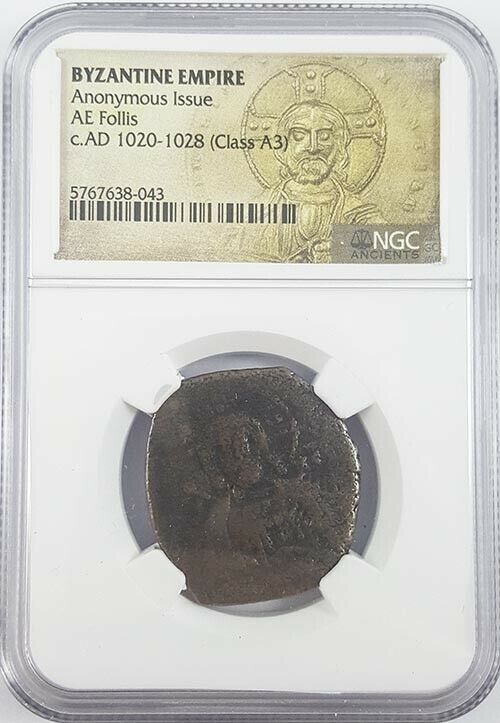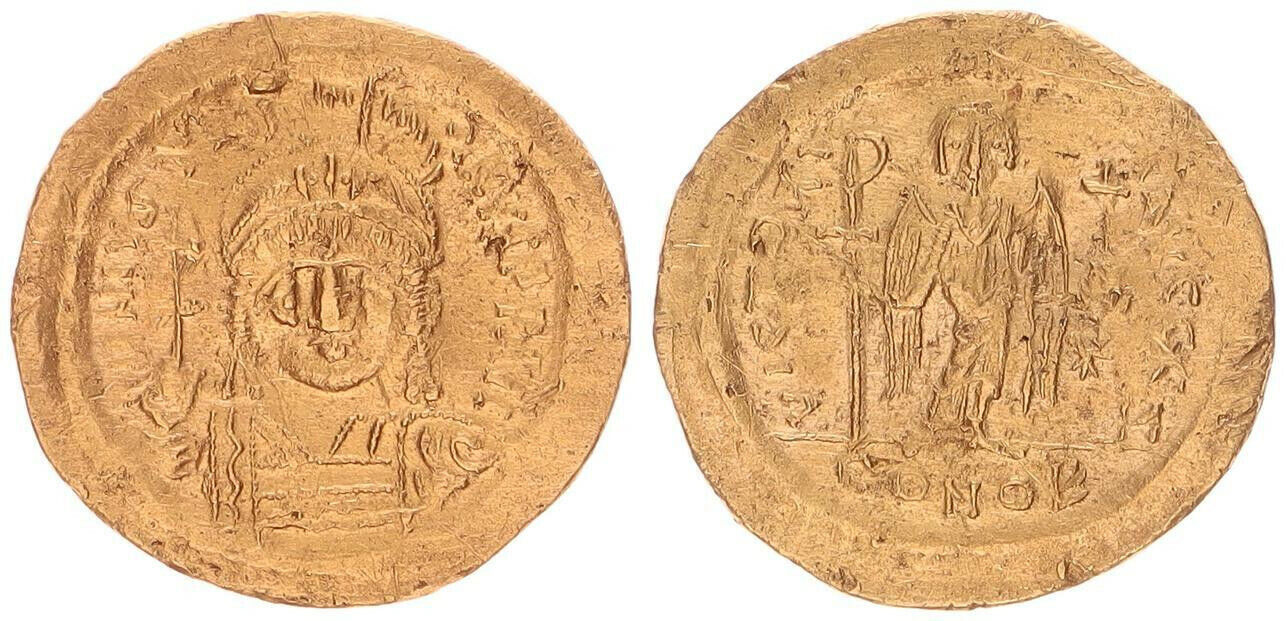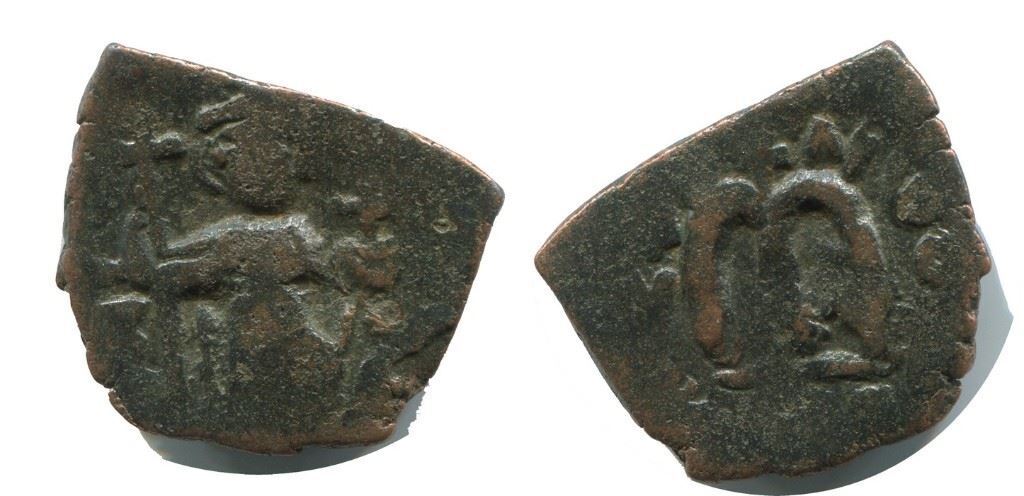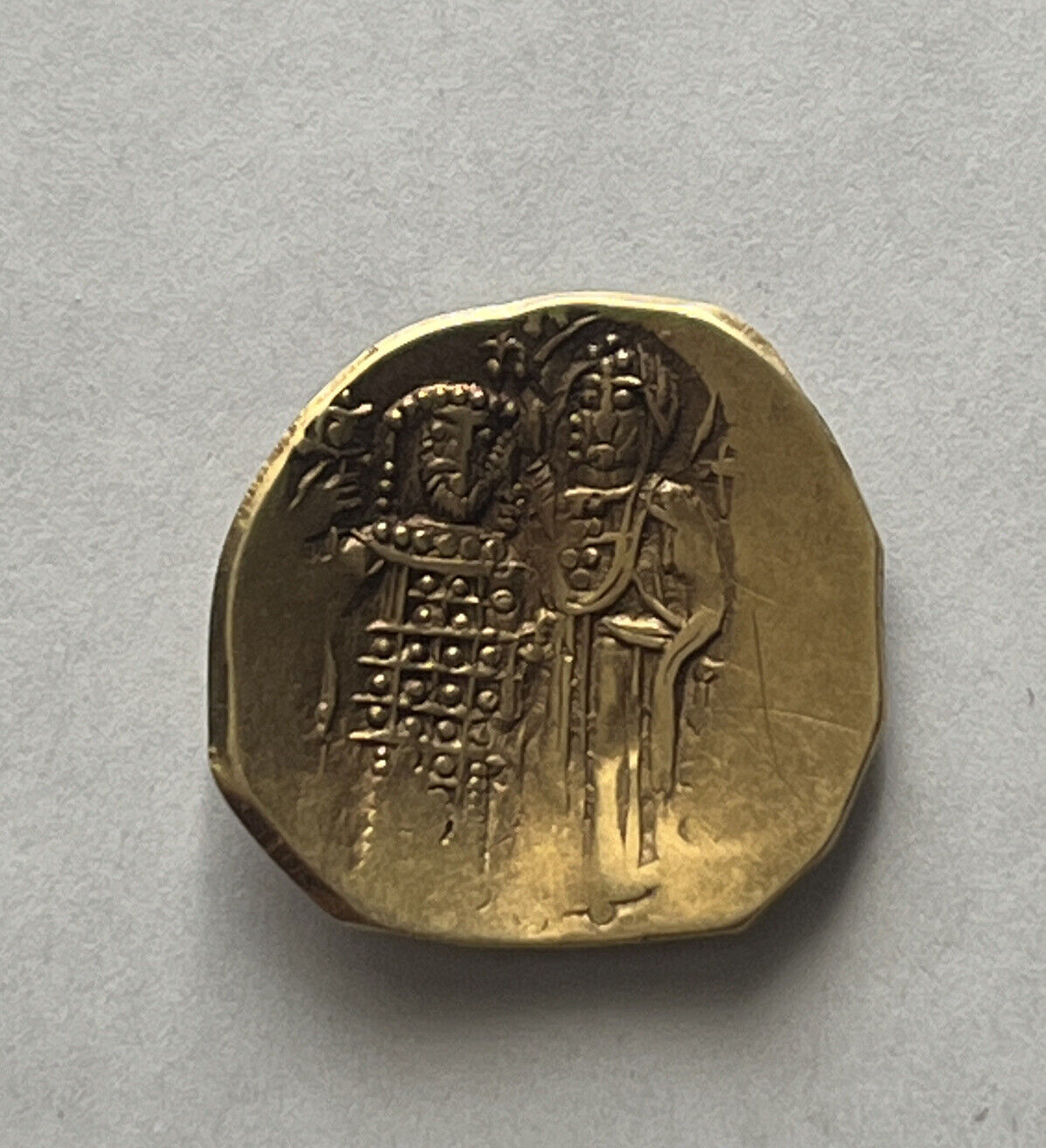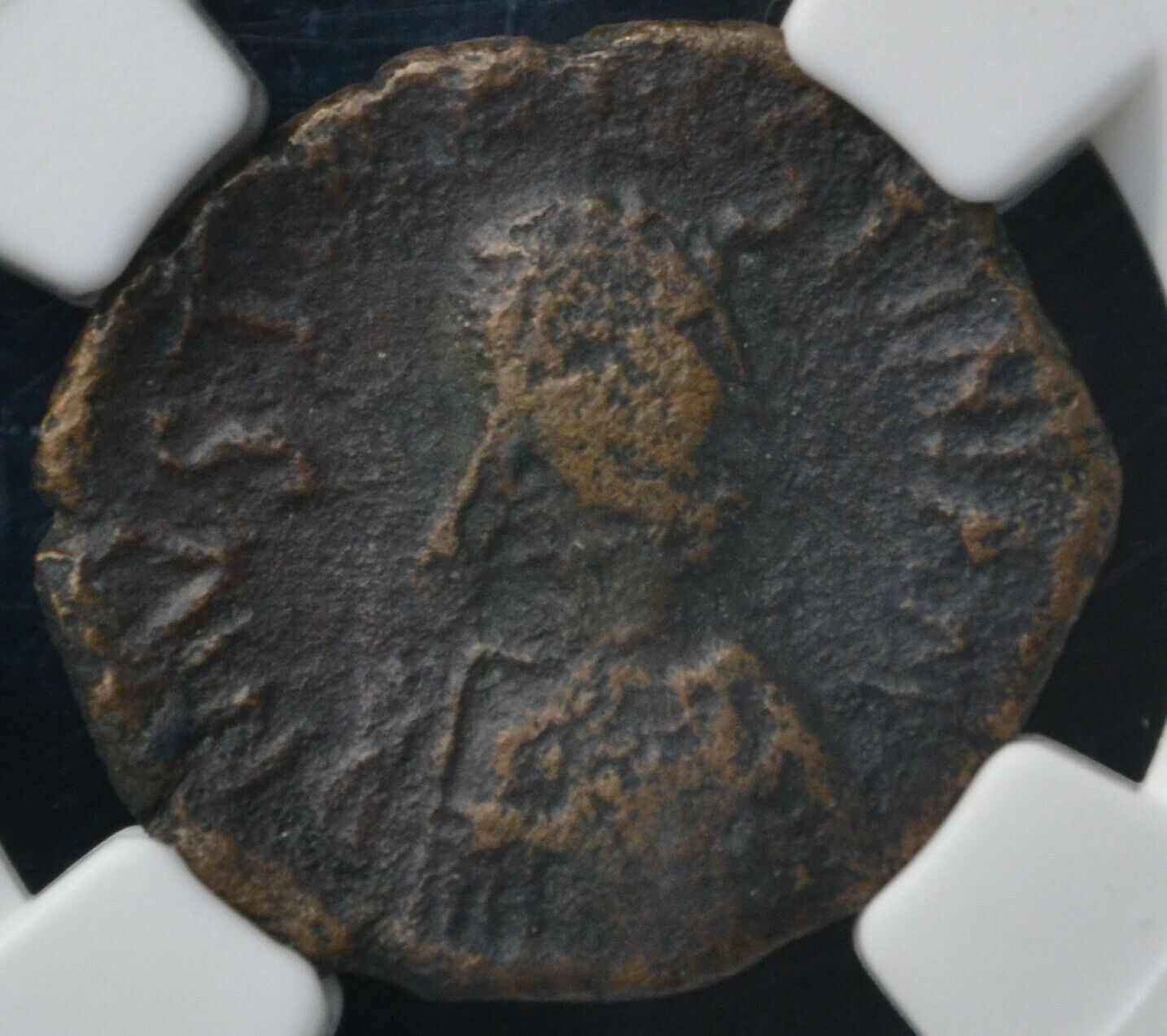-40%
Byzantine Andronicus II & Michael IX Basilicon c. AD 1294 NGC Choice XF, Sharp !
$ 131.47
- Description
- Size Guide
Description
Andronicus II Palaeologus and Michael IX (AD 1294-1320). Anonymous Issue. AR Basilicon (21mm, 5h).Constantinople, AD 1304-1320.
Obverse: KYPIЄ-BOHΘЄI, Christ enthroned facing, wearing nimbus cruciger, pallium and colobium, right hand raised in benediction, book of Gospels in left; IC-XC (barred) across fields, large pellet under each arm, single border / Reverse: AVTOKPATO-PЄC POMIWN, Andronicus II (on left) and Michael IX (on right), both standing facing, wearing crown with pendilia, saccos and loros with five (Andronicus) and four (Michael) pellets on sleeves, jointly holding labarum between them with circle on shaft below banner. Sear 2402.
Graded
Choice XF, brushed. Census [71/52], total of 1085 graded.
Combined shipping available. Please view our high resolution photos.
Andronikos II Palaiologos (Greek:
Ἀνδρόνικος Δούκας Ἄγγελος Κομνηνὸς Παλαιολόγος
, romanized:
Andrónikos Doúkās Ángelos Komnēnós Palaiologos
; 25 March 1259– 13 February 1332), usually Latinized as Andronicus II Palaeologus, reigned as Byzantine Emperor from 1282 to 1328. Andronikos' reign was marked by the beginning of the decline of the Byzantine Empire. During his reign, the Turks conquered most of the Western Anatolian territories of the Empire and, during the last years of his reign, he also had to fight his grandson Andronikos in the First Palaiologan Civil War. The civil war ended in Andronikos II's forced abdication in 1328 after which he retired to a monastery, where he spent the last four years of his life.






